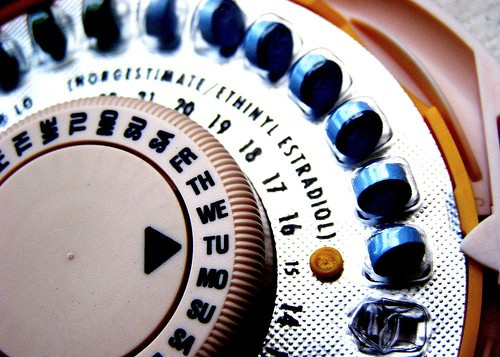World Contraceptive Day: The options don't end with birth control pills
Major side effects of taking the pill should be considered as a reason to learn more about other options.
In the United Kingdom, oral contraceptive pills are the most commonly used method of birth control. Though taking the pill allows women to have control over their bodies, it has been proven to have a number of serious side-effects. Alternative birth control methods are proving to put women at less risk of health problems. Male contraceptive methods are being developed and encouraged to ensure that men and women play an equal role in using birth control.
Regulating menstrual cycles, moderating pain and blood flow, reducing acne and premenstrual syndrome (PMS) as well as resolving endometriosis are some of the benefits of the pill. However, women may suffer from nausea, headaches, decreased libido, weight gain and intermenstrual spotting. Studies have proven that young women taking the pill are at a higher risk of mental health-related illnesses.
Alternative female contraceptive methods are sterilisation, long-acting reversible methods (LARC) like intrauterine devices (IUDs), diaphragms, hormone patches, and emergency contraceptive pills. Most of the methods are intrusive, expensive or have side-effects.

Condoms are considered the easiest form of birth control. In many countries, they are given out for free. Using them does not require any medical procedure. It is known not to have any side-effects while being highly effective. Yet, the National Institute for Health and Care Excellence in 2016 concluded that the pill was the primary birth control method in the UK.
The Conversation brought to light research conducted on the onus of birth control falling primarily on women in the western world. Laurie James-Hawkins, Lecturer in Sociology and Social Psychology at the University of Essex led the study. 44 men at a university in the United States of America were interviewed. The research concluded that the men were worried that by using a condom they might disrespect the autonomy women have over their bodies. Hence, the men chose to wait for women to initiate a conversation about contraception. In an attempt to let the women have power over their bodies, men are shirking off the responsibility of initiating the contraception conversation.
Male contraceptive pills and contraceptive gels are in the developmental stages. Men who have been a part of the testing process have reported no drop in their libido. Future male birth control methods look promising, but we do not have to look into the future for men to share the responsibility of contraception. As the World Contraceptive Day is celebrated around the world on September 26, women should choose alternative birth control methods while their male partners should carry a condom and initiate the contraception conversation.
Today is #WorldContraceptionDay.
— WHO at the EU (@WHOatEU) September 26, 2019
Contraception & the right to choose when to have children are at the centre of reproductive health.
And yet the unmet need for #contraception remains too high, harming the well-being & autonomy of women as well as the development of communities. pic.twitter.com/ERuwNUcXZs
© Copyright IBTimes 2025. All rights reserved.





















